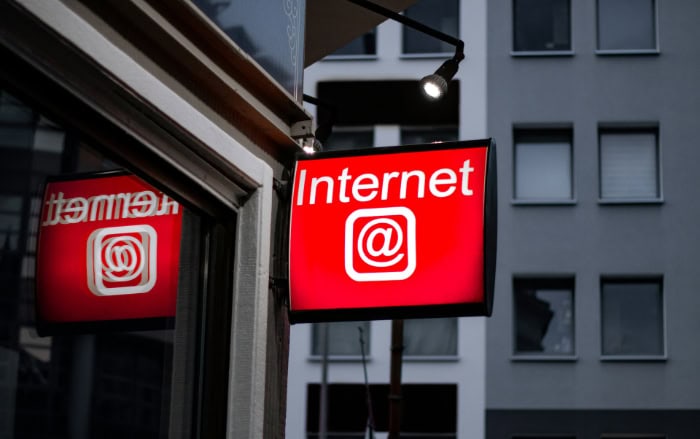What Is ISP Tracking? Everything You Need to Know

Every click, every search, every website visited—your Internet Service Provider (ISP) has a front-row seat to your online activities. ISP tracking, a pervasive practice that often goes unnoticed, allows these companies to collect and analyze vast amounts of user data.
As we increasingly rely on the internet for work, entertainment, and communication, it’s crucial to understand how ISPs monitor our digital footprints and the potential implications for our privacy.
The Basics of ISP Tracking
Internet Service Providers (ISPs) play a central role in connecting users to the vast online world. However, this privileged position also enables them to monitor and collect data on their customers’ internet activities.
ISP tracking refers to the practice of gathering, analyzing, and potentially storing information about users’ online behavior. This surveillance can encompass a wide range of data points, providing ISPs with a comprehensive view of an individual’s digital life.
What ISPs Can See
When you connect to the internet through your ISP, a wealth of information becomes available to them. Some of the most common types of data collected include:
Browsing History: ISPs can track the websites you visit, the pages you view, and the time spent on each site. This information can reveal your interests, habits, and online preferences.
Connection Metadata: Details such as the IP addresses you connect to, the duration of your sessions, and the amount of data transferred can be monitored by ISPs. This metadata can provide insights into your online activities and communication patterns.
Unencrypted Communications: If you access websites or services that do not use encryption (e.g., HTTP instead of HTTPS), your ISP can see the content of your interactions, including any data you submit or receive.
Location Data: ISPs can determine your approximate location based on the IP address assigned to your device. This information can be used to infer your physical whereabouts and movement patterns.
How ISPs Collect Data
ISPs employ various techniques to monitor and analyze user traffic. Some of the most common methods include:
Deep Packet Inspection (DPI): DPI involves examining the contents of data packets transmitted over the internet. ISPs can use DPI to identify the types of applications and services being used, as well as the specific content being accessed.
IP Address Monitoring: By keeping track of the IP addresses assigned to users’ devices, ISPs can associate online activities with specific individuals or households.
DNS Requests: When you enter a website address into your browser, your device sends a DNS (Domain Name System) request to translate the domain name into an IP address. ISPs can log these requests, revealing the websites you intend to visit.
The extent of ISP tracking and the specific methods employed may vary depending on the provider and the legal regulations in place. However, it is essential to recognize that ISPs have the technical capability to gather and process vast amounts of user data, which can have significant implications for privacy and online anonymity.
Why ISPs Track User Data
ISP tracking is not a random or arbitrary practice. There are various reasons why ISPs engage in monitoring and collecting user data.
These motivations range from legal obligations to commercial interests, network management, and security concerns.
Legal Requirements
One of the primary reasons ISPs track user activity is to comply with legal requirements and data retention laws. Many countries have legislation in place that mandates ISPs to collect and store certain types of user data for a specified period.
These laws are often designed to assist law enforcement agencies in investigating criminal activities or to support national security efforts. ISPs must adhere to these legal obligations to operate within the bounds of the law and avoid potential penalties.
Business Interests
Another significant motivation behind ISP tracking is the potential for commercial gain. The data collected by ISPs can be a valuable asset in the digital economy. By analyzing user browsing habits, interests, and demographic information, ISPs can create detailed profiles of their customers.
This data can then be monetized through targeted advertising, partnerships with third-party marketers, or by selling aggregated and anonymized data to other companies. The revenue generated from data monetization can be a substantial source of income for ISPs.
Network Management
ISP tracking also plays a role in network management and bandwidth allocation. By monitoring user traffic patterns and identifying high-demand services or applications, ISPs can optimize their network infrastructure to ensure smooth performance and minimize congestion.
This data can help ISPs make informed decisions about capacity planning, traffic prioritization, and resource allocation. Effective network management is essential for providing a reliable and efficient internet service to customers.
Security Concerns
ISPs have a responsibility to contribute to online security and assist law enforcement agencies when necessary. Tracking user activity can help detect and prevent cybercrime, such as hacking attempts, malware distribution, or illegal content sharing.
ISPs can use the data they collect to identify suspicious patterns, block malicious traffic, and report criminal activities to the appropriate authorities. Collaboration between ISPs and law enforcement agencies is crucial for maintaining a safe and secure online environment.
Privacy and Ethical Issues
While ISP tracking serves various purposes, it also raises significant privacy concerns and ethical questions. The extensive collection and analysis of user data can be seen as an invasion of privacy, as it allows ISPs to gain intimate knowledge of their customers’ online lives.
There are concerns about the potential misuse or unauthorized disclosure of this sensitive information. ISPs must navigate the delicate balance between fulfilling their legal and operational responsibilities while respecting user privacy and maintaining trust.
Transparency about data collection practices, robust security measures, and adherence to privacy regulations are essential for addressing these ethical considerations.
Privacy Risks of ISP Tracking

ISP tracking has significant implications for user privacy and online anonymity. The extensive data collection practices employed by ISPs raise concerns about the visibility of personal information and the potential for misuse.
It is crucial to understand the scope of ISP tracking and how it compares to other forms of online tracking to fully grasp its impact on privacy.
Extent of Data Visibility
ISPs have access to a wide range of user data, including browsing history, connection metadata, and in some cases, even the content of unencrypted communications. This level of visibility allows ISPs to build detailed profiles of their customers’ online activities, interests, and behaviors.
The extent of data collection can be far-reaching, as ISPs can monitor all internet traffic passing through their networks, regardless of the devices or applications being used.
Potential Data Misuse
The vast amount of user data collected by ISPs creates a significant risk of misuse or unauthorized access. If not properly secured and protected, this sensitive information could fall into the wrong hands, leading to privacy breaches, identity theft, or other malicious activities.
Additionally, there are concerns about ISPs themselves misusing the data for purposes beyond network management or legal compliance, such as targeted advertising or selling user profiles to third parties without explicit consent.
Impact on Online Privacy
ISP tracking can severely impact user privacy and compromise online anonymity. By monitoring and analyzing internet traffic, ISPs can link online activities to specific individuals or households, making it difficult for users to maintain privacy and control over their personal information.
This loss of anonymity can have a chilling effect on free speech, as users may feel hesitant to express themselves or access certain content if they know their actions are being monitored.
Comparison with Other Tracking Methods
While ISP tracking is a significant concern, it is important to note that it is not the only form of online tracking. Websites often employ cookies and other tracking technologies to collect user data for targeted advertising and analytics purposes.
Browser fingerprinting, which involves identifying users based on the unique characteristics of their devices and software configurations, is another method used to track online activities. However, ISP tracking is particularly pervasive because it encompasses all internet traffic, regardless of the specific websites or services being accessed.
The combination of ISP tracking with other forms of online tracking creates a complex web of data collection that can be difficult for users to navigate and control. It is essential for individuals to be aware of the various tracking methods and take steps to protect their privacy, such as using encryption tools, opting out of targeted advertising, and being cautious about the personal information they share online.
Laws and Regulations on ISP Tracking
The legal landscape surrounding ISP tracking is complex and varies across jurisdictions. Laws and regulations have been put in place to govern the collection, use, and protection of user data by ISPs. Understanding the relevant legal framework is essential for both users and ISPs to ensure compliance and protect individual privacy rights.
US Laws on ISP Tracking
In the United States, two primary laws that regulate ISP tracking are the Electronic Communications Privacy Act (ECPA) and the Stored Communications Act (SCA). The ECPA sets guidelines for the interception and disclosure of electronic communications, while the SCA addresses the privacy of stored electronic communications.
These laws provide some protections for user data, but they also include exceptions that allow ISPs to collect and disclose information under certain circumstances, such as with user consent or for legitimate business purposes.
International Regulations
The legal framework for ISP tracking varies significantly across countries. In the European Union, the General Data Protection Regulation (GDPR) sets strict rules for the collection, processing, and storage of personal data, including that collected by ISPs.
The GDPR requires user consent for data collection, grants individuals the right to access and delete their data, and imposes hefty fines for non-compliance.
Other countries have their own specific laws and regulations governing ISP tracking. For example, Australia’s Telecommunications (Interception and Access) Act regulates the interception and disclosure of communications, while Canada’s Personal Information Protection and Electronic Documents Act (PIPEDA) sets guidelines for the collection, use, and disclosure of personal information by private sector organizations, including ISPs.
User Rights and Protections
Despite the existence of laws and regulations, the extent of user rights and protections regarding ISP tracking can vary. In many cases, users have the right to access and request the deletion of their personal data collected by ISPs.
They may also have the ability to opt-out of certain data collection practices or request that their data not be sold to third parties.
However, exercising these rights can be challenging, as the process for requesting data access or deletion may not always be straightforward. Additionally, some laws provide exceptions that allow ISPs to retain and use user data for specific purposes, such as network management or legal compliance.
It is crucial for users to be aware of their rights under the relevant laws and regulations in their jurisdiction. They should review privacy policies and terms of service provided by their ISPs to understand how their data is being collected and used.
If concerns arise, users can seek guidance from privacy advocacy organizations or legal professionals to protect their rights and navigate the complex legal landscape of ISP tracking.
Protecting Yourself from ISP Tracking

While ISP tracking is pervasive, users are not powerless in protecting their online privacy. Several tools and techniques can help mitigate the extent of data collection and enhance online anonymity.
Virtual Private Networks (VPNs)
Virtual Private Networks (VPNs) are a popular and effective tool for protecting online privacy. A VPN encrypts your internet traffic and routes it through a secure tunnel, making it difficult for ISPs to monitor your online activities.
When choosing a VPN, it is advisable to opt for a paid service rather than a free one. Free VPNs often have limitations and may collect user data themselves, defeating the purpose of using a VPN for privacy. Paid VPNs typically offer better security features, faster speeds, and more reliable connections.
They also tend to have strict no-logging policies, ensuring that your online activities remain private.
The Tor Network
The Tor network is another powerful tool for enhancing online privacy. Tor, short for “The Onion Router,” is a decentralized network that allows users to browse the internet anonymously.
When you connect to the Tor network, your traffic is routed through multiple nodes, making it extremely difficult to trace your online activities back to your device. Tor also encrypts your traffic, adding an extra layer of security.
While Tor can be slower than a regular internet connection due to the multiple hops your data takes, it provides a high level of anonymity and protection against ISP tracking.
Alternative DNS Providers
Domain Name System (DNS) is the phonebook of the internet, translating domain names into IP addresses. By default, most users rely on their ISP’s DNS servers, which can allow the ISP to see the websites they visit.
Switching to an alternative DNS provider can help protect your privacy. One such provider is Quad9, a privacy-focused DNS service based in Switzerland.
Quad9 does not log user queries and blocks access to known malicious websites, enhancing both privacy and security. By using an alternative DNS provider like Quad9, you can limit the amount of information your ISP can collect about your browsing habits.
Conclusion
ISP tracking is a pervasive and complex issue that has far-reaching consequences for online privacy. From the data collected by ISPs to the legal frameworks governing their practices, it is essential for internet users to have a comprehensive understanding of how their online activities are monitored and the potential risks involved.
The motivations behind ISP tracking are varied, ranging from legal obligations and network management to commercial interests and security concerns. However, the extensive collection and analysis of user data raise significant privacy concerns and can compromise online anonymity.
Fortunately, there are tools and techniques available to help mitigate the impact of ISP tracking. Virtual Private Networks (VPNs), the Tor network, and alternative DNS providers offer ways to encrypt traffic, mask online activities, and limit the information available to ISPs.
However, it is crucial to recognize that no single solution is perfect, and protecting online privacy requires a multi-faceted approach.
As individuals, it is our responsibility to stay informed, assess our personal privacy needs, and take appropriate action to safeguard our online presence. This may involve adopting privacy-enhancing technologies, being cautious about the information we share online, and advocating for stronger legal protections and transparency from ISPs and other data collectors.


